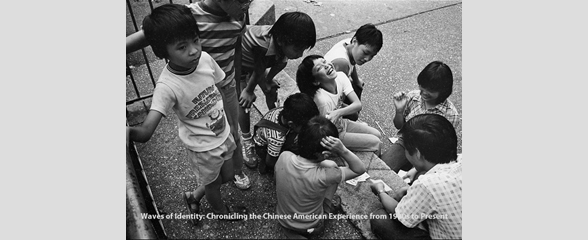Chinese Americans;Chinese American families;Chinatown (New York, N.Y.);Hastings (Ont. : County);Upstate New York (N.Y.);Westchester County (N.Y.);Christianity;Immigration & society;Laundry;Laundry workers;Education;Boy Scouts;Cub Scouts;Small business

1984.002.002 Oral History Interview with Cliff Law
Cliff Law grew up in the town of Hastings in Upstate New York and later moved to New York Chinatown in the late 1930s. His father, Harry Law, owned a foundry that manufactured laundry equipment in nearby Kingston and a hardware store in Chinatown at 11-13 Doyers Street (likely Excelsior Laundry Machines Co.). The oral history interview begins with Cliff recalling memories of Doyers Street, as well as discussing the history of 11-13 Doyers Street, the building his father purchased after a fire in 1934/35. The two-story building, which housed his father’s hardware store, a Chinese arcade and Nom Wah Tea Parlor downstairs and an apartment in which Cliff grew up upstairs, was located in a corner called the Bloody Angle, so-called because this was where the Hip Sing and On Leong tongs often fought. In the interview, Cliff shares details about his father’s life, including that he came to work on the railroads in the 1880s when he was 17 or 18 years old, that he saved and moved to New York and for a while worked as an interpreter in Westchester County, that he lost his first wife, who was caucasian, in the flu epidemic of 1918, and that he divided his time between tending his foundry and hardware store and traveling around the country to sell and install laundry equipment in Chinese laundries. Cliff also talks about growing up in Hastings, visiting Chinatown every Sunday with his family, then moving there to live when he was in fourth grade. While living in Chinatown, Cliff went to PS 23 and Chinese school, attended the Presbyterian Church on 33rd Street and True Light Church/Mission regularly, and was an active member of the Cub Scouts as well as the first air scouts squadron organized in Chinatown during World War II.